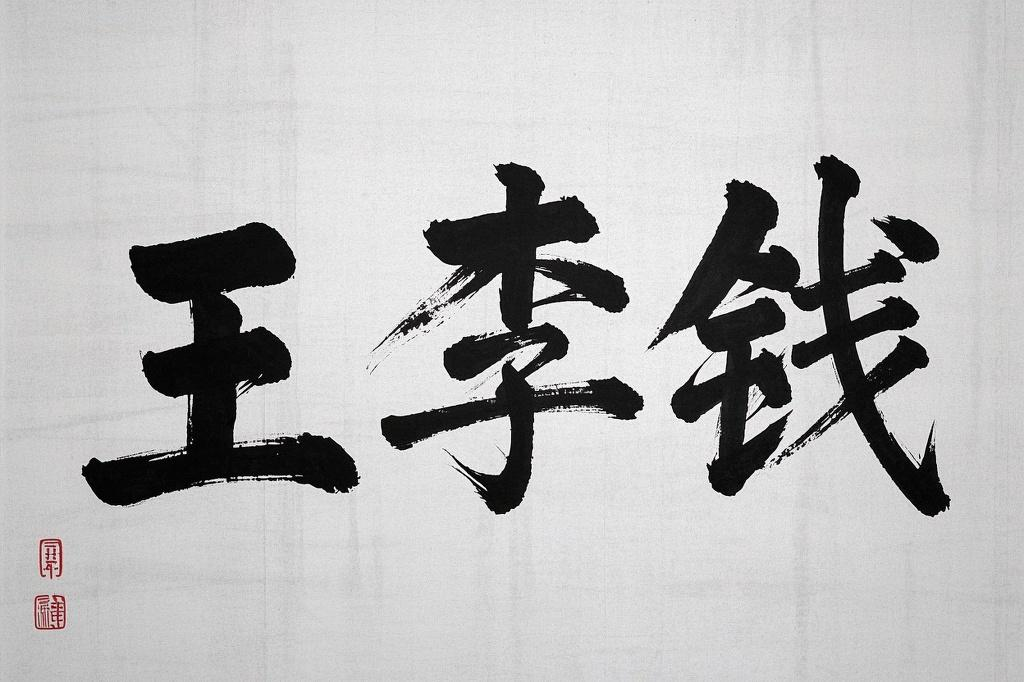Introduction to Chinese Surnames

Chinese surnames (姓氏, xìngshì) are a cornerstone of cultural identity, reflecting millennia of history, social values, and regional diversity. Unlike Western naming conventions, Chinese surnames always come first (e.g., 李小龙 Lǐ Xiǎolóng), followed by a given name. With over 6,000 recorded surnames, only a small fraction dominate the population, each carrying unique historical and cultural significance.
Origins and Meanings
Chinese surnames originated from:
Ancient Tribes: Early matrilineal clans (e.g., 姜 Jiāng, 姚 Yáo) often included the radical 女 (female).
Patrilineal Evolution: Clan names (氏, shì) later emerged to distinguish family branches, tied to occupations (e.g., 陶 Táo, "pottery"), titles, or territories.
Imperial Influence: Emperors granted or altered surnames as rewards or punishments.
Nature and Philosophy: Many surnames derive from plants (李 Lǐ, "plum tree"), colors (黄 Huáng, "yellow"), or virtues (周 Zhōu, "completeness").
Top 20 Most Common Surnames
Based on China’s 2020 census and historical records, here are the 20 most prevalent surnames, their meanings, and population shares:
Rank | Surname | Pinyin | Population Share | Meaning/Origin |
1 | 王 | Wáng | 7.25% | "King" – Linked to royal descendants. |
2 | 李 | Lǐ | 7.19% | "Plum Tree" – Tang Dynasty imperial family. |
3 | 张 | Zhāng | 6.83% | "Bow" – Ancient archery-related role. |
4 | 刘 | Liú | 5.14% | Han Dynasty rulers, from the state of Liu. |
5 | 陈 | Chén | 4.53% | "To Exhibit" – Zhou Dynasty state of Chen. |
6 | 杨 | Yáng | 3.29% | "Poplar Tree" – Nobility from Jin state. |
7 | 黄 | Huáng | 2.41% | "Yellow" – Symbolizes earth; tied to the Yellow Emperor. |
8 | 赵 | Zhào | 2.04% | Zhou Dynasty state of Zhao; Song Dynasty imperial surname. |
9 | 周 | Zhōu | 1.91% | "Cycle" – Zhou Dynasty founders. |
10 | 吴 | Wú | 1.75% | From the Spring and Autumn Period state of Wu. |
11 | 徐 | Xú | 1.44% | "Calm" – Eastern Yi tribe leader Xu Yan. |
12 | 孙 | Sūn | 1.38% | "Grandchild" – Zhou Dynasty nobility. |
13 | 马 | Mǎ | 1.36% | "Horse" – Linked to cavalry or Central Asian origins. |
14 | 朱 | Zhū | 1.29% | "Vermilion" – Ming Dynasty imperial surname. |
15 | 胡 | Hú | 1.18% | "Foreign" – Adopted by northern ethnic groups. |
16 | 郭 | Guō | 1.13% | "City Wall" – Descendants of the Zhou state Guo. |
17 | 何 | Hé | 1.06% | Derived from the surname Han (韩). |
18 | 林 | Lín | 1.01% | "Forest" – Survivors of a Shang Dynasty massacre. |
19 | 高 | Gāo | 0.98% | "High" – Nobles from the Qi state. |
20 | 罗 | Luó | 0.96% | "Net" – From the ancient state of Luo. |
Key Stats:
The top 3 surnames (Wang, Li, Zhang) account for 21% of China’s population.
The top 20 surnames cover over 55% of the population.
Cultural Significance
Family Identity: Surnames bind generations, with many families preserving genealogical records (zǔpǔ).
Naming Taboos: Historically, using an emperor’s surname or given name was forbidden.
Modern Shifts: Since 2021, children can take either parent’s surname, challenging traditional patrilineal norms.
Fun Facts
Rare Surnames: A few surnames have nearly vanished, such as 死 (Sǐ, "death") or 醋 (Cù, "vinegar").
Compound Surnames: Two-character surnames like 欧阳 (Ōuyáng) and 司马 (Sīmǎ) often trace back to ancient nobility or official titles.
Creative Combinations: Some parents merge both parents’ surnames (e.g., 张李 Zhāng-Lǐ) for uniqueness.
Why Surnames Matter
Chinese surnames are more than labels—they are living records of conquests, migrations, and cultural values. From the royal legacy of 王 (Wang) to the natural symbolism of 林 (Lin), each name tells a story of China’s past and present. For foreigners, understanding these names offers a gateway to appreciating one of the world’s oldest continuous civilizations.